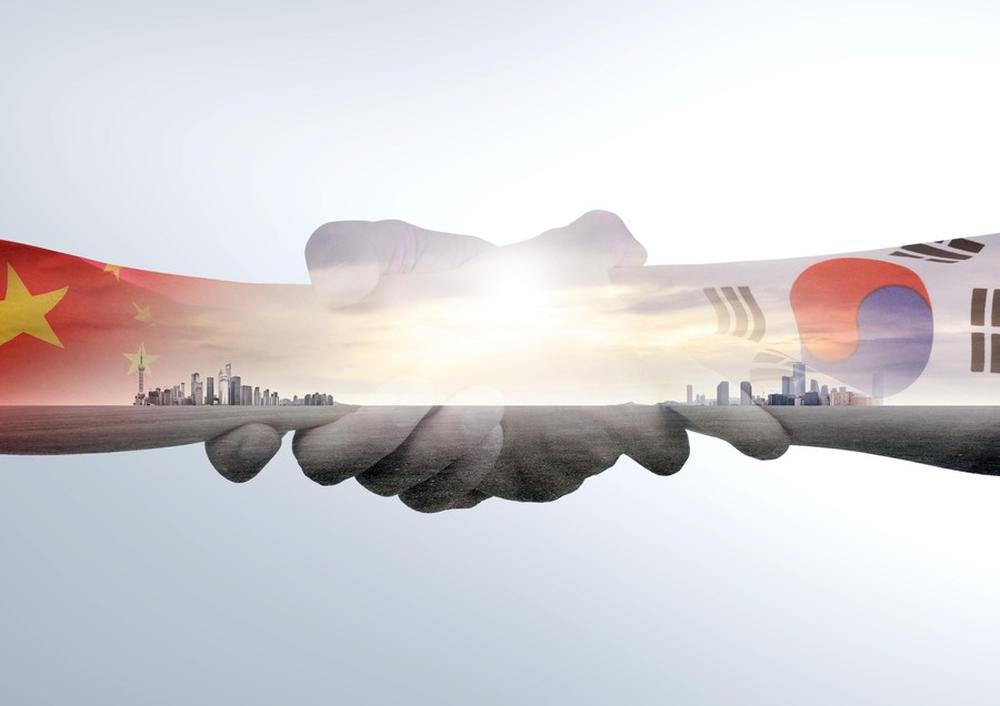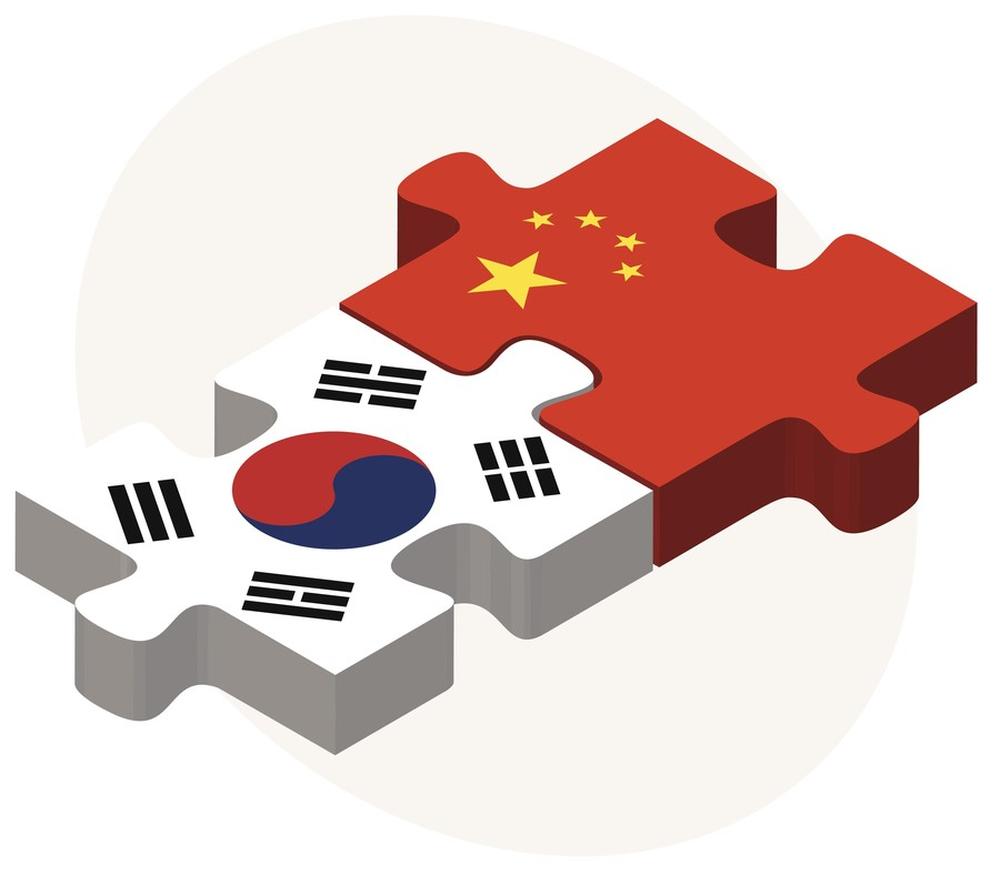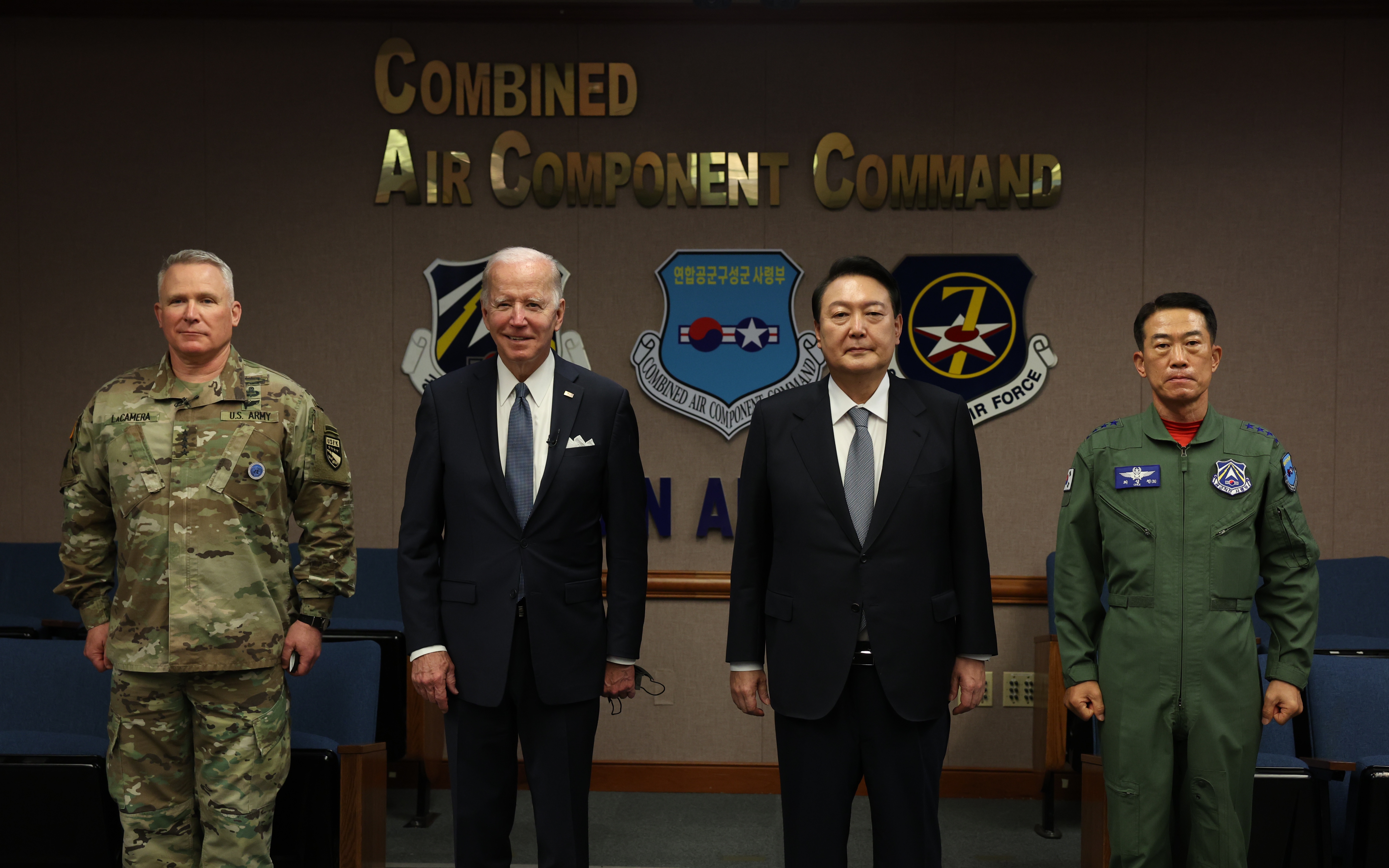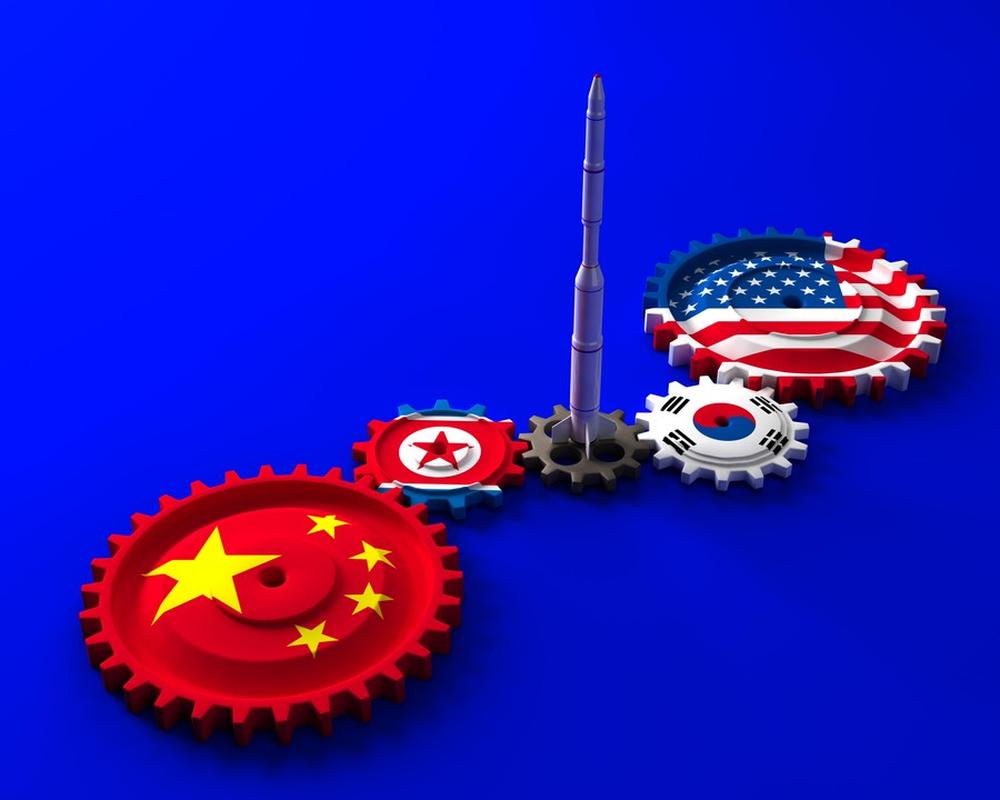- #Economy & Trade
- #Global Issues
- #South Korea
- #US-ROK Alliance
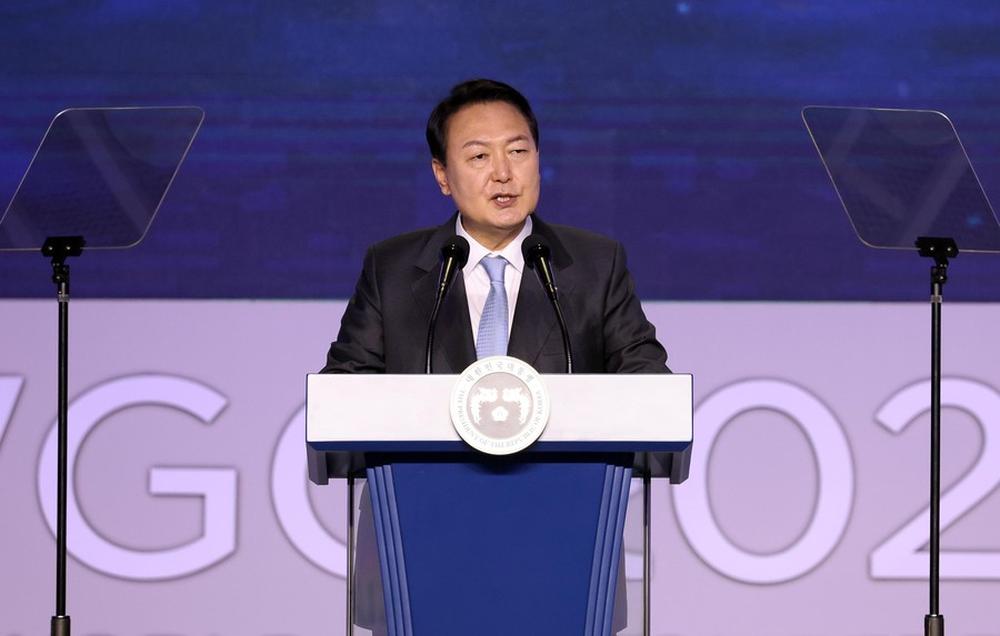
▸ Upon Yoon’s inauguration, there is little doubt that a strong alliance will be formed between ROK and the US.
▸ The hard question is, then, how to build a lasting alliance that can produce tangible results when the two presidents share a great deal of challenges, both at home and abroad.
▸ With the divided government and growing political polarization, both presidents are motivated to show strong leadership to the public and demonstrate visible accomplishments.
The newly inaugurated president of South Korea, Yoon Suk Yeol, raises hopes and concerns for the country’s future over the next five years. While some are hopeful that the ROK-US alliance will be reaffirmed and strengthened during his incumbency, others worry whether such a move would destabilize the regional equilibrium that is already on the verge of a shift. Having run under the conservative party platform, President Yoon vowed to make efforts to change the course of domestic and foreign policies instituted by the previous administration, which includes restoring the ROK-US relations and extending them to encompass economic and regional cooperation.
Upon Yoon’s inauguration, there is little doubt that a strong alliance will be formed between ROK and the US. Biden’s visit to South Korea sends a clear signal that the US is willing to actively engage with South Korea (and the Asian region more broadly), especially when it comes to deterring North Korea’s military provocations and building a resilient economic partnership. This is a welcome gesture for President Yoon, who has emphasized time and again that a “comprehensive and strategic alliance with Washington” is the top priority for peace and prosperity in the Korean Peninsula.
The hard question is, then, how to build a lasting alliance that can produce tangible results when the two presidents share a great deal of challenges, both at home and abroad. In this piece, I will lay out these challenges and explain how South Korea can leverage the changing global environment to forge an enduring alliance with the US.
Common Challenges
Both presidents were elected during the pandemic and bear the burden of restoring normalcy in the post-pandemic era. The incumbent presidents face a hard job of recovering the overheated yet stagnant economy and transforming the current economic outlook into one based on rapid technological advances. Furthermore, both administrations have to accomplish the task under a divided government, where the opposition party is likely to hold the majority position in the legislature. The Biden administration is fighting an uphill battle as the upcoming mid-term election is projected to yield an increased number of the GOP seats in both chambers. Likewise, the Yoon administration has already shown tensions with the opposition-led National Assembly over cabinet appointments, foretelling potential confrontations over major political and economic decisions. Any serious domestic reform, therefore, will require cross-party consensus, and the post-COVID 19 economic expansion programs are under strict scrutiny. The approval rating for Biden’s performance has already shown an all-time low at below 40 percent, and the Yoon administration would also expect some backlash should his economic plans fail to garner bipartisan support nor produce tangible results in the near future.
In addition to the political challenges, the fundamental shifts in the world order bring into question the legitimacy of the US status as the leader and frontier of liberal democracy. With the so-called “democratic backsliding” spreading across the world, the US has witnessed its own erosion of social and political unity marked by deepening polarization, racially motivated violence and mass shootings. Internationally, the withdrawal of American troops from Afghanistan brought much chaos in the region and drew skepticism about the willingness of the U.S. to actively engage in and extend assistance to the polities at the brink of regime change.
The political environment is no less contentious in South Korea. The current president won the election with the smallest margin in the country’s electoral history, revealing the underlying chasm among various political, economic, and social groups. Beyond domestic conflicts, the recent situation with North Korea seems to have been unpredictable at best. While various attempts were made during former president Moon’s term to pursue inter-Korea peace, the two Koreas have not reached a significant milestone as of yet. It is unclear whether South Korea and the US sought shared strategies in a concerted manner; rather, the conflicting goals and actions seem to have led to buying more time for North Korea to augment their military capacity. Worse yet, through peace talks culminating in the 2018 Singapore Summit, Kim Jong Un could consolidate his position as a consummate leader who stood shoulder to shoulder with the world’s most powerful political figure, but without delivering much concessive measures. The current political impasse seems to continue for the time being, and it remains to be seen how the renewed ROK-US alliance can make a breakthrough.
From Crisis to Opportunities: Momentum, Caution, and Flexibility
What implications do the aforementioned challenges have for the ROK-US relations? With the divided government and growing political polarization, both presidents are motivated to show strong leadership to the public and demonstrate visible accomplishments. The threats to the post-Cold War unipolarity are likely to position the US to reaffirm its ties with the democratic allies rather than pursue “America first” exceptionalism strategies, a change-of-direction that corresponds to the Korean president’s mandate for protecting liberal democratic values. This means that both presidents’ offices are likely to pursue momentum and active engagement in resolving the current economic and security issues. In this sense, Biden’s visit to South Korea and Japan is a timely opportunity for the Yoon administration to lay a foundation for a resilient and enduring alliance.
With that said, one should not overstate the significance of the visit but carefully observe both parties’ action plans after the trip. The Biden Administration already showed some agility in identifying the primary objective of the visit. While Washington remarked that the North Korea issue will be at the “front and center” of his discussion, great attention was paid to securing economic partnership and local investment. The Biden visit made it unequivocally clear that South Korea is an important trade partner for the US, and the impact could be beyond economic. For Biden and the Democratic Party, promoting a resilient economic alliance is not only important to secure the global supply chain but can also be politically critical to the fate of the upcoming midterm election. With Korean companies building production facilities and creating jobs, even the next presidential election could be at stake in a swing state like Georgia, where companies like Hyundai Motor and SK Battery America are located.
Biden’s proactive diplomacy implies that South Korea has indeed become an indispensable ally for the US, and the Yoon administration needs to find a way to leverage the economic interdependence in making joint efforts to contain North Korea. However, South Korea should also be mindful of the fact that the ROK-US supply chain mainly involves high-end technology by large corporations, while small and mid-sized companies rely more on transactions with China. Koreans have already witnessed how security concerns over the THAAD deployment crushed the tourist industry and local businesses and cast a long-term impact on the national economy. The Yoon administration should therefore carefully weigh in the domestic ramifications of the ROK-US economic alliance and consider how to minimize the negative outcomes for the domestic economy.
Finally, South Korea should take a consistent approach to supporting the universal, not American, norms of freedom and human rights. As mentioned above, many countries, including the US, share the perils of liberal democracy, and it is important to demonstrate that the South Korean government stands firm in promoting democratic norms not because it is what the US wants but because it is what the country has fought for and what it aspires to achieve. In times of democratic backsliding, the Korean people have shown a healthy track record of protecting their democratic system, and yet as a mature democracy, South Korea now faces newer challenges that her Western counterparts have long dealt with: equality and integration. Throughout his term, President Yoon will be pressed to demonstrate his prowess in running a pluralistic country with various political and social demands, including gender equality, immigrant incorporation, and LGBTQ rights. If South Korea were to rise to global leadership, it should be ready to address these issues, if not solve them, by actively engaging in global efforts for social equality.
Min Hee Go is an Associate Professor in the department of Political Science and International Relations at Ewha Womans University, South Korea. She earned her Ph.D. from the University of Chicago in 2012 and taught as assistant professor at Brooklyn College, the City University of New York (CUNY). Her research interests broadly concern key issues in diversity and sustainability, including gender, race and ethnicity, and sustainable development. Her book, Rethinking Community Resilience: The Politics of Disaster Recovery in New Orleans, was published at NYU Press in 2021.
